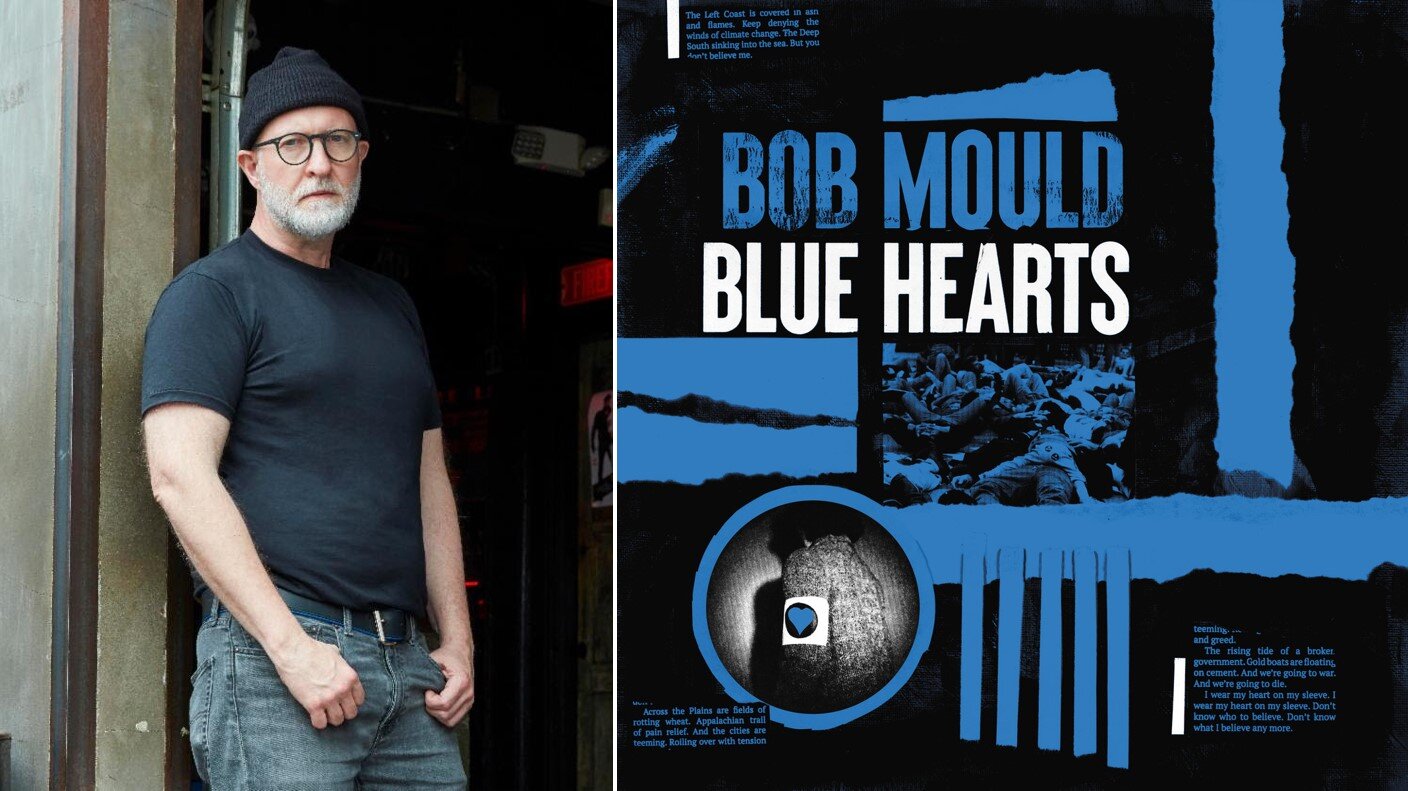Bob Mould
Blue Hearts
Merge
Listen Below
Bob Mould's Blue Hearts, his fourteenth solo album, is a concert captured in an album, live-sounding songs relentlessly flowing into each other, leaving the listener feeling like they just got off of a water park racing slide that was accidentally overfilled. It's throwback rock & roll, with only one song over three minutes, a punch that doesn't hurt, so much as it reminds you that you're alive.
Mould came up through Hüsker Dü, the beloved band that managed to influence so many ‘90s grunge bands without translating the influence into impressive record sales. After a brief solo career, Mould returned with the more commercially successful Sugar, and then went solo once again, managing to consistently release high-quality albums every few years.
He has an instantly recognizable sound, his metallic-voice clamoring to be heard over guitars, usually working in the same musical configuration of drums, bass, and guitars. Yet every album has a unique tone that separates it from the others. Blue Hearts' sound is deliberately lo-fi, with the drums, bass, and vocals mixed a bit behind Mould's caustic guitar, which is what helps make the album sound like a live show caught on tape.
Lyrically, Mould is raging at the state of the country and the world. With song titles like "American Crisis" and lines like "Wake up every day to see a nation in flames / We click and we tweet and we spread these tales of blame," it's easy to see where Mould is coming from. And that's why the music behind him is so important.
If Mould were singing these kinds of observations over gentle acoustic guitars, a Rachel Maddow monologue set to music, it might come off as fairly standard observations, depending, of course, upon your personal politics. But joined to pounding drums, crunchy guitars, and Mould's screaming vocals, the song becomes a way for Mould to channel his rage. The lyrics are important, but they feel more like an organizing principle for his angry syllables. Mould doesn't want us to contemplate the state of our country; he's giving marching orders to fix things.
Blue Hearts is more than politics, though. "Baby Needs a Cookie" is a surprisingly funny story about failed love, and how the powerlessness of an ended relationship can feel infantilizing. Musically, it's a less propulsive groove than many of the other tracks, more of a skip than a sprint, helping with the pacing of the album. Mould, a veteran of countless performances, knows an audience needs some down-time to regather their energy, and "Baby" is one of those points.
Calling an artist uncompromising can be code for stubborn or self-destructive, so perhaps it's more accurate to call Mould true to himself and his vision. A track like "When You Left" has a typical high-speed poppy Mould guitar riff that countless bands have borrowed and slowed down. Mould knows this and could have done the same, stretching a two and half minute track into a longer, more radio-friendly modern rock track that, possibly, might have been mistaken for a new Foo Fighters song. But even pushing 60, Mould is all about the speed and intensity of the message.
Notable Tracks: “American Crisis” | “Baby Needs a Cookie” | “When You Left”
Note: As an Amazon affiliate partner, Albumism may earn commissions from purchases of vinyl records, CDs and digital music featured on our site.
LISTEN:


